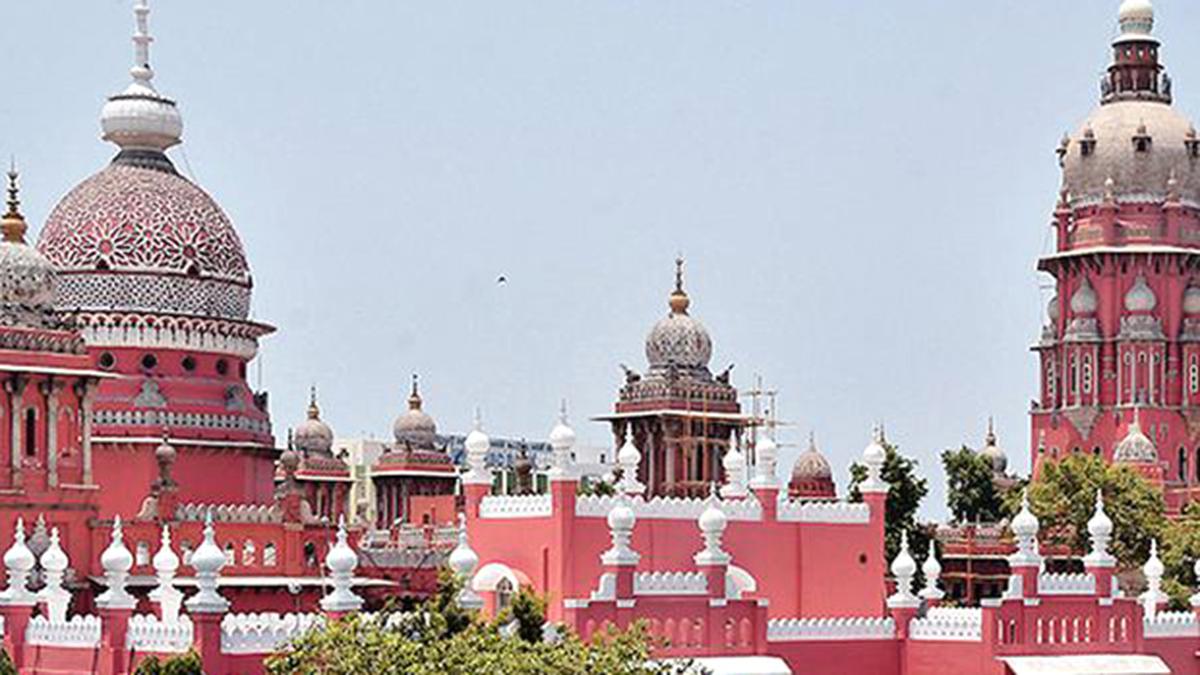
Murasoli Trust land row | Madras High Court to pronounce judgement on January 10
The Hindu
Madras High Court to decide on Murasoli Trust plea to prohibit NCSC from inquiring into its Kodambakkam property title.
The Madras High Court on Monday, January 8, 2024, decided to pronounce its judgement on Wednesday, January 10, on a 2020 plea by the Murasoli Trust, associated with the ruling DMK party, to prohibit the National Commission for Scheduled Castes (NCSC) from inquiring into the title or character of a property owned by it, in Kodambakkam in Chennai.
Justice S.M. Subramaniam took the decision after hearing senior counsel P. Wilson, for the trust, who contended that even during the AIADMK regime, the then Chief Secretary had written to the NCSC on December 26, 2019 clearly stating that the land in question had been classified as Ryotwari and not Panchami.
The senior counsel said the incumbent Chennai Collector too, had submitted before the court, all records available with the Revenue Department to show that the 12 grounds and 1,825 sq.ft., of trust land was actually part of a much larger extent of 22 acres and 79 cents classified as Ryotwari.
The 22 acres of land had been sold by a private company to Parvathy Madhavan Nair, who was the wife of a former High Court judge, in 1936. She, in turn, had settled 16 grounds and 288 square feet of it in favour of her son in 1957. Anjugam Pathipagam (a publishing company named after DMK stalwart M. Karunanidhi’s mother) had purchased 12 grounds and 1,825 sq.ft., from him in 1974.
Thereafter, the publishing company sold the land to the Murasoli Trust which had obtained a patta (revenue document on land ownership) in 2022. Since there were voluminous documents to prove that the land in question was not a Panchami property, meant for Scheduled Castes, the NCSC could not be allowed to abuse its Constitutional powers by conducting a roving inquiry, Mr. Wilson argued.
On the other hand, senior counsel S. Ravi, representing BJP functionary R. Srinivasan, who had lodged a complaint with the NCSC, contended that the mystery over the classification of the land still continues since an encumbrance certificate (EC) obtained by his client had no reference to the 1974 sale deed.
Mr. Ravi said, the Chennai Collector had claimed Anjugam Pathipagam purchased the land by way of document number 4381/1974 on June 22, 1974. However, the EC obtained by the complainant had no reference to any such document number. The EC referred to only document number 4383 of 1974 but this number was that of some unconnected property in Tiruvannamalai district, he claimed.

 Run 3 Space | Play Space Running Game
Run 3 Space | Play Space Running Game
 Traffic Jam 3D | Online Racing Game
Traffic Jam 3D | Online Racing Game
 Duck Hunt | Play Old Classic Game
Duck Hunt | Play Old Classic Game

















